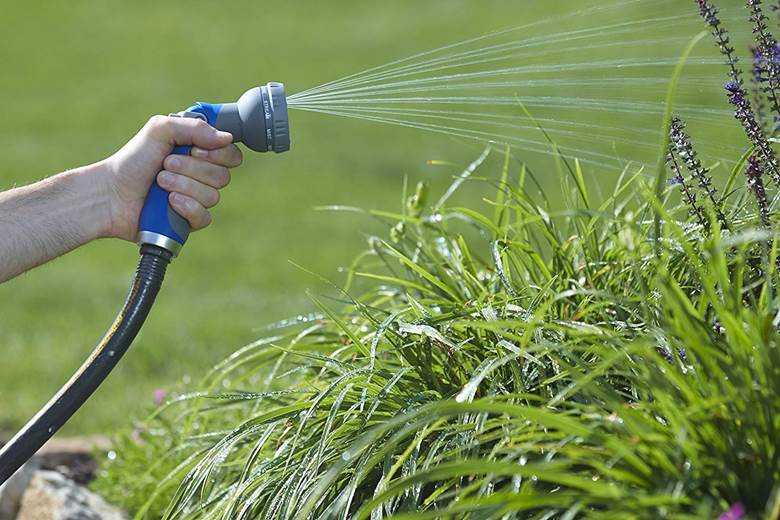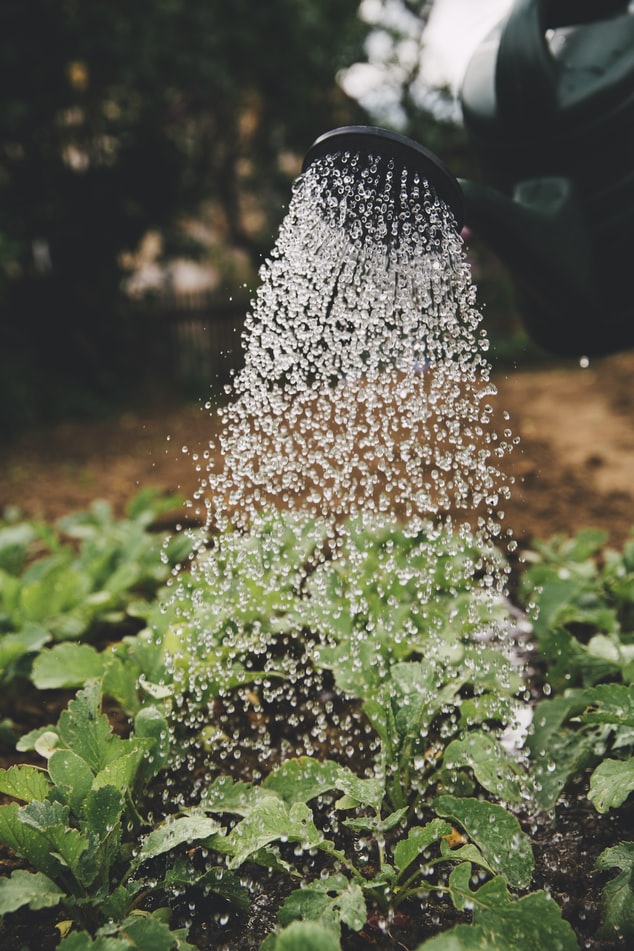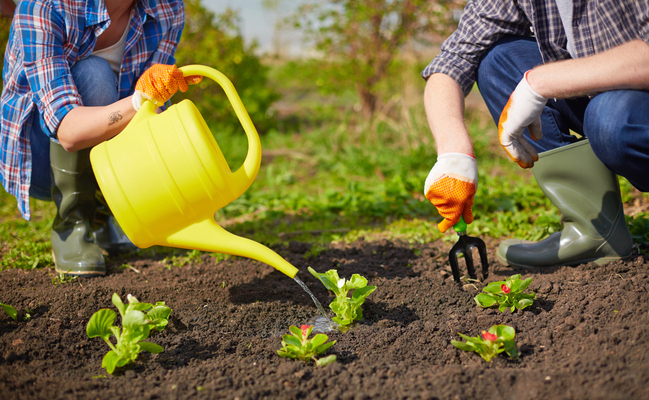The summer heat is undoubtedly taking a toll on everything, and plants are no exception!
 Photos by: Unsplash and Freepik
Photos by: Unsplash and Freepik
Whether you're dealing with a few houseplants or creating an entire garden outdoors, you should do whatever you can to keep your plants healthy during the devastating summer heat. While some plants like cacti and succulents are adapted to high temperatures, most houseplants are not used to extreme summer heat waves. With temperatures expected to be over 90 degrees, the following tips can help you prepare your plants for the summer heat.
1. Time your watering
Watering your plants early, late in the morning and late in the evening, has a positive effect on your plants and your mental well-being. You should water your plants between 6 a.m. and 10 a.m., just before the heat sets in. This will give your plants plenty of time to take in the water they need for healthy growth. If you can't water them in the morning, the next convenient time is between 4pm and 7pm.
If your area does not have a dry climate, it is best not to water your plants at night. Exposure to cold and wet conditions at night encourages bacterial and fungal growth as well as infestation by saubugs, slugs, slugs, earwigs and other forms of pests. If it's impossible to water them in the morning or in the evening, you can water them at noon as any amount of water is better than none.
Note that the popular belief that watering plants on a hot, sunny day causes sunburn that damages your plants has proven to be untrue. Sunburn, which usually appears as yellow or bleached areas on the leaves of young, heat-sensitive plants, is caused by excessive exposure to the sun, not water droplets. While there are several good reasons why you shouldn't water your plants under the blazing sun, foliage is not one of them. Watering in the morning is good as the air and soil are cool, which minimizes the risk of evaporation. There is also no wind, which avoids wasted water due to wind drift.

2. Water well and deeply
Plants, especially outdoor container plants and new plantings without an established root network, like humans, need adequate hydration during the summer heat. In contrast to ground plants, potted plants, especially those that grow in small pots, baskets and clay pots lined with peat moss or coconut fiber made from sphagnum, are very prone to dehydration. However, such plants require special attention during this time, such as daily watering. As a rule of thumb, pour water every time the first 5 cm of the bottom of the container appear dry. Note that if the plants are in a smaller or porous pot, you will need to water frequently. On the other hand, annual and perennial plants that grow in the soil can be watered three times a week. When watering, make sure that the water slowly penetrates the soil. This encourages the roots to reproduce deeper and stronger.
3. Protect heat-sensitive plants from sunlight
The severe summer heat wave can be difficult for new transplants as they have not yet developed a strong root system. Once your garden plants are in pots, place them in a partially shaded area to protect them from the strong afternoon sun. Grafts that are mature enough to be planted in the ground should be hardened. Also, transplant them in an area of the garden with speckled light or have afternoon shade.
A pro tip is to grow them next to tall annual or deciduous perennials that can offer them some cover. You can use a shady cloth to protect plants in the ground. Shadow clothing blocks a certain amount of sun called the shadow factor.

4. Learn to recognize stress
It is also important that you learn to recognize signs of stress on your plants. The key to keeping them healthy is identifying and mitigating these problems early on, before they devastate your indoor and outdoor plants. Common signs of heat stress are:
- Tropical plants with delicate leaves often wither when exposed to heat
- The foliage can turn from light green to pale under stress
- Sunburn can manifest itself in a number of ways
- Flowers and leaves may turn yellow or fall off.
5. Save water by mulching
Mulching is the best way to keep your lawn hydrated. Applying a layer of mulch to the soil promotes water retention by minimizing evaporation caused by excessive heat. It also prevents water from draining when watering the garden. The trick is to make sure you don't use excessive mulch as it will be difficult for the water to penetrate the soil.
Bottom line
Your garden plants can stay healthy and shine in the harsh summer season. If you follow these and other tips, there are some things you shouldn't do too. For example, stop or minimize fertilizing of plants, avoid overhead watering, and do your best to prevent pest infestation. Note that pests like whiteflies become more notorious in these weather conditions. If your garden seems infested, turn to the best Pest control company to keep your plants healthy.




